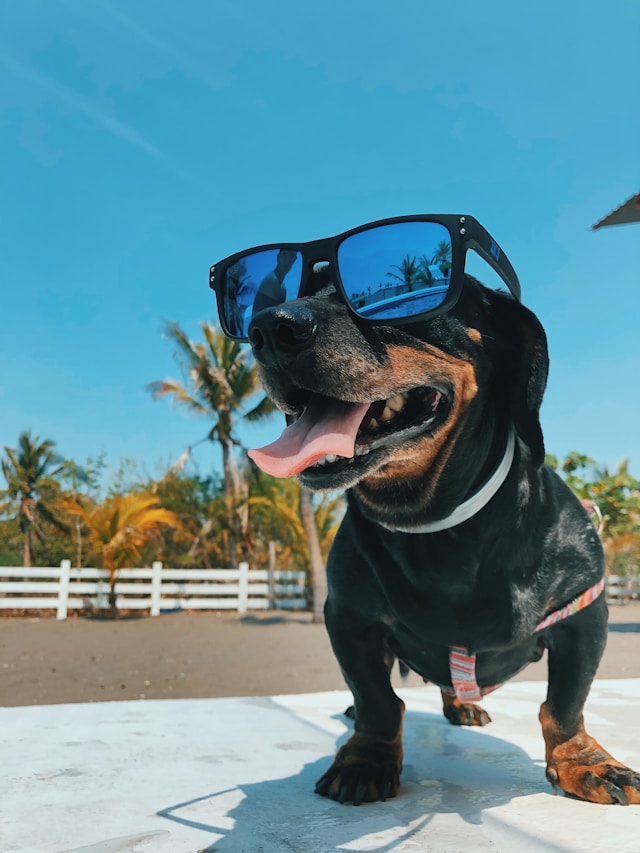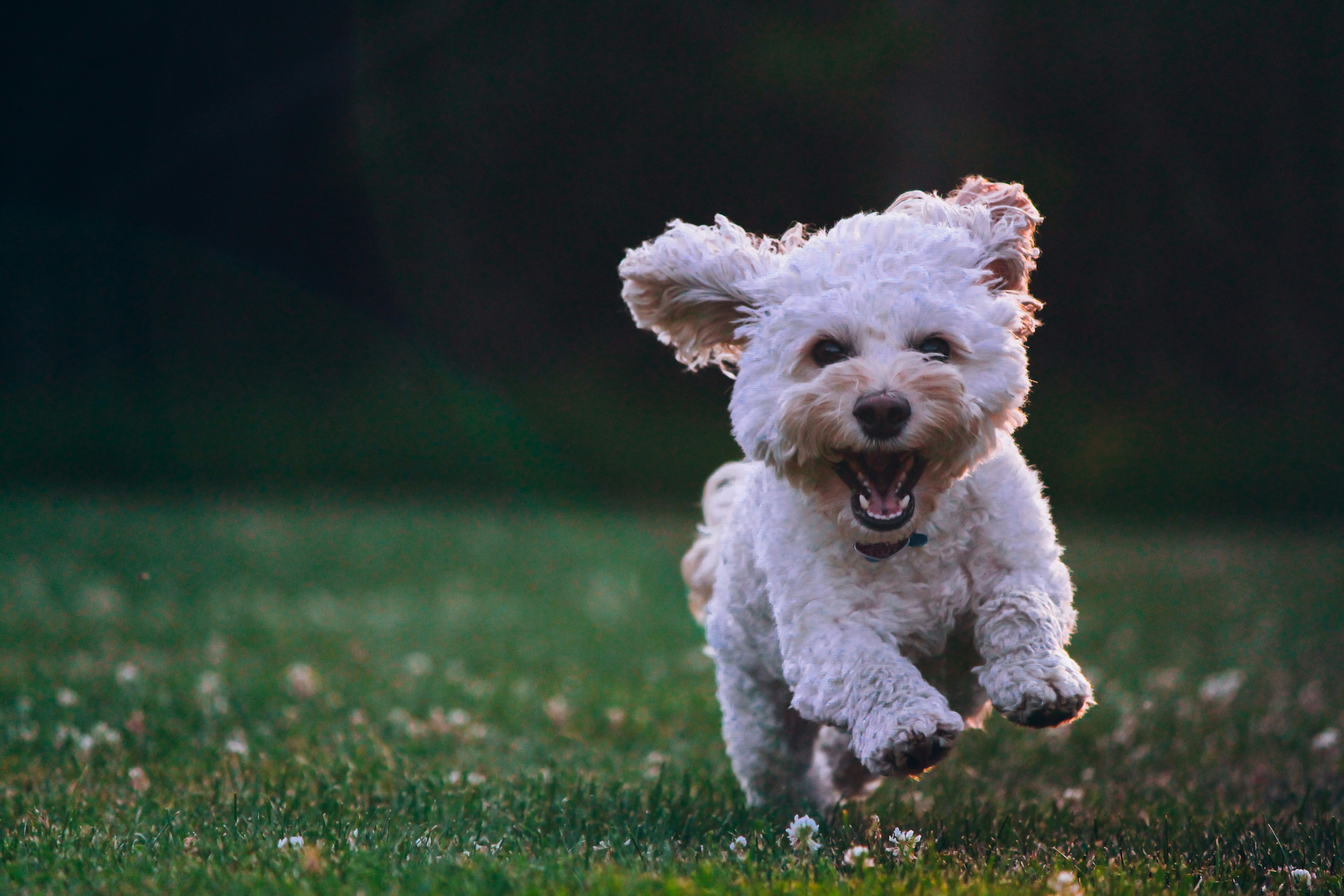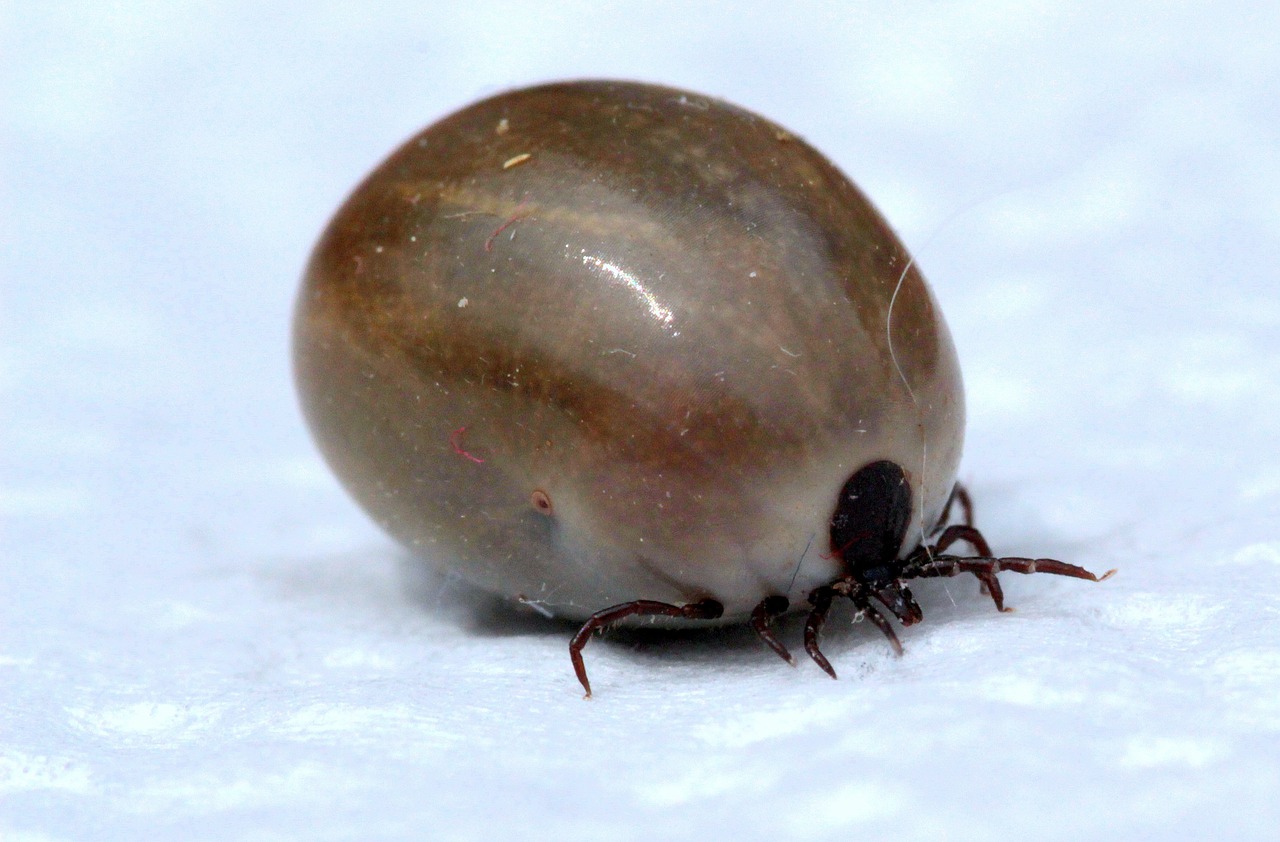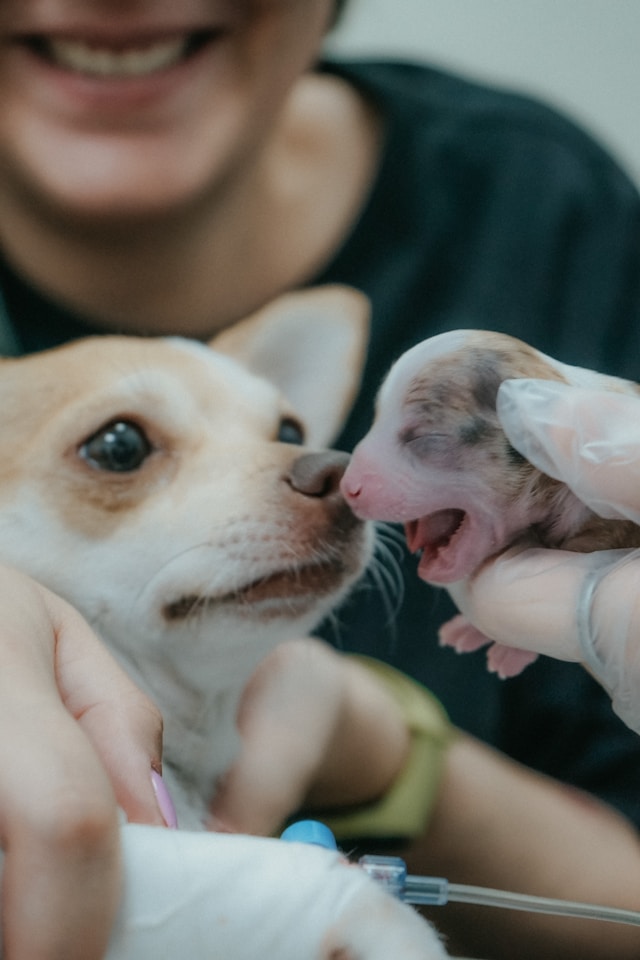Basenji
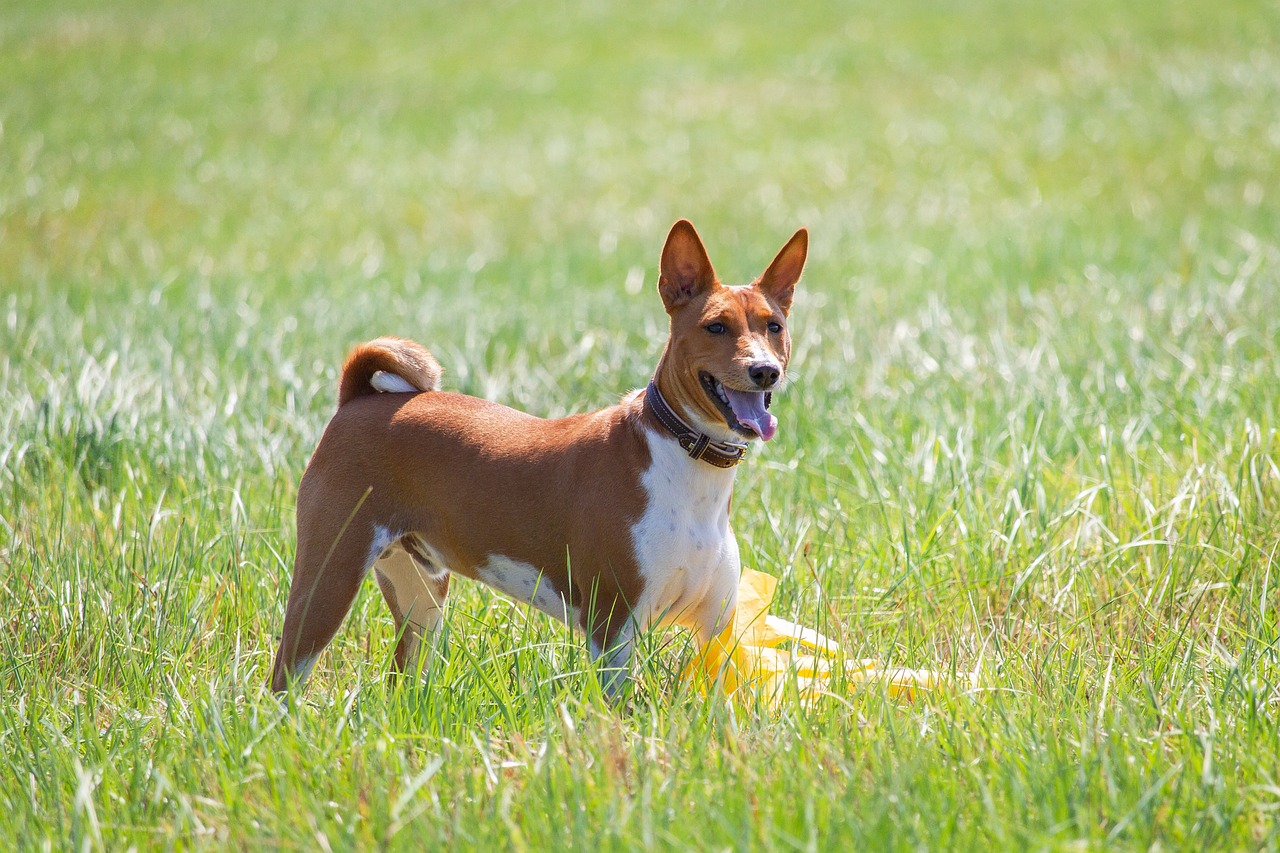
| OFFICIAL NAME | Basenji |
| COMMON NAME | Basenji |
| PET HEIGHT | 16 to 17 inches |
| PET WEIGHT | 22 to 24 pounds |
| LIFESPAN | 13 to 14 years |
| GOOD WITH | children, dogs, families |
| TEMPERAMENT | aloof, friendly, gentle, playful, willful |
| INTELLIGENCE | high |
| SHEDDING AMOUNT | occasional |
| EXERCISE NEEDS | high |
| ENERGY LEVEL | hyper |
| VOCAL LEVEL | when necessary |
| DROOL AMOUNT | low |
| BREED GROUP | hound |
| BREED SIZE | small (0-25 lbs.) |
| COAT LENGTH | short |
| COLORS | black, red, white |
| PATTERNS | bicolor, brindle, tricolor |
| OTHER TRAITS | apartment-friendly, easy to groom, high prey drive, tendency to chew |
Living with a Basenji can be a unique experience. They are often called the "barkless" dogs but are far from silent. (For proof, search "yodeling Basenji" on YouTube.) This small but determined breed from Africa has endless energy and a strong prey drive.
Basenjis love to track scents, so they are prone to wandering off if not supervised. Instead of letting them roam freely, engaging them in activities like tracking, agility, or lure coursing to channel their energy is better.
Basenjis can be very stubborn and playful, demanding a lot of patience and a good sense of humor from their owners. They are not the best choice for first-time dog owners, but if you're ready for the challenge, keep reading to learn more about this unique breed.
Appearance
The Basenji is a unique and ancient hunting dog known for its lean yet muscular build. These dogs are compact and have distinct features such as alert, pointed ears, almond-shaped eyes that are dark hazel or brown, and a bushy tail that curls tightly over their back. The wrinkles on their forehead give them an endearing, concerned look. Their short, fine coats come in four primary colors recognized by the American Kennel Club: chestnut red, black, tricolor (black, tan, and white), or brindle (black stripes on a chestnut base). No matter the color, all Basenjis have a white chest, feet, and tail tip.
Basenjis shed very little and are easy to care for. They are often compared to cats because they spend much time grooming themselves. Thanks to this habit, they usually don't have a typical dog smell and don't need frequent baths (which is good because most Basenjis dislike water). However, it's still a good idea to brush your Basenji weekly and bathe them occasionally if they get dirty. The Basenji Club of America offers a helpful guide with best practices for grooming your Basenji.
Personality
Basenjis, initially bred for long hunts in the African wilderness, are energetic and intelligent dogs that need plenty of daily exercise and mental stimulation. These dogs are clever and willful, known for their independent and mischievous nature.
"Basenjis are smart and active, and understanding how they learn is crucial," says Brian Kilcommons, founder of The Great Pets Resort in Connecticut. "They are the most cat-like of all dogs. There's a saying: With dogs, you give commands; with cats, you make suggestions. That's pretty close to how Basenjis operate." Instead of barking, Basenjis produce a unique yodeling sound. Whether you find it adorable or annoying is up to you. They aren't big enough to scare off intruders. Still, they will alert you to anything they find suspicious, like the delivery person or a passing squirrel.
Basenjis are very playful and, although independent, prefer to keep you within sight. Suppose they don't get enough exercise or are left alone for too long. In that case, they can become noisy and exhibit unwanted behaviors. Living with a Basenji requires good humor—owners often joke about everything their Basenjis have destroyed. On the bright side, these dogs will help keep your home clutter-free.
It's important to socialize your Basenji from a young age. A well-adjusted Basenji can get along with cats, other dogs, and older children. It is essential to teach children how to interact properly with dogs and supervise their playtime with any animal.
Living Needs
Don't be fooled by a Basenji's independent nature—they're not loners. These hunting dogs like to keep an eye on their owners. While they might not be the type to snuggle in your lap, they'll definitely let you know when they want some attention. Basenjis are full of energy and need lots of exercise, so they're best suited for homes with a well-fenced yard. And remember, always watch them outside because they're known to escape. "They're escape artists. No fence is too high for them to climb," says Kilcommons.
Even with their small size and clean coats, a well-exercised Basenji can adapt to apartment living—just don't leave them alone for too long, as they can get noisy.
"'Oh, they're barkless!' Well, yes, but they yodel and scream," Kilcommons points out. Having another pet in the house can help meet this pack dog's companionship needs.
Basenjis have an excellent sense of smell and a strong prey drive. If they're not properly secured, they chase after anything that catches their eye. "If there's a squirrel and your Basenji is off-leash, you can watch his tail disappear over the horizon," Kilcommons says. "Are there off-leash Basenjis? Yes, but they're rare. It takes a lot of work."
Instead of taking them to the dog park, consider involving a Basenji in canine sports like tracking, agility, and lure coursing. These activities are great for burning off their energy and building a solid bond between you and your dog.
With a Basenji, you're in for a lot of fun. These small dogs have big personalities! They're best for owners who enjoy spending quality time with their pets and have quick access to outdoor spaces or for those interested in dog sports.
Before getting any dog, it's crucial to consider your lifestyle. Talk to a Basenji breeder or rescue group to determine if this breed matches your needs.
Care
Basenjis are very particular about their grooming habits, much like cats. They spend a lot of time keeping themselves clean, which makes them a low-maintenance breed. You won't need to bathe them often, and a simple brushing once a week will keep their skin healthy and their coat looking great. During these brushing sessions, you can also check for a few things:
A shiny coat (dull hair might indicate a dietary issue)
Nail length (trim them if you hear them clicking on the floor)
Ear health (their ear canals should be a pale pink with minimal, odorless wax)
Look for any signs of mites or foreign objects in their ears. Also, make sure to brush your Basenji's teeth regularly. While these home health checks are essential, they don't replace regular vet visits. Always consult your vet if you have any concerns.
Due to their intelligence, training a Basenji can be challenging. They need patience, creativity, and lots of positive reinforcement.
"They're very sensitive," says Kilcommons. "If you only correct them for things you don't like, you'll have trouble—they don't respond well to harsh treatment," Kilcommons advises using plenty of treats and making training sessions fun for your Basenji.
Health
The Basenji is generally a healthy dog breed with a typical lifespan of 13–14 years. However, like all breeds, Basenjis can be prone to certain health issues. The Basenji Club of America, the breed's official club, recommends that breeders test for several conditions: hip dysplasia, autoimmune thyroiditis, Fanconi syndrome, and progressive retinal atrophy (PRA). The dog should also have an annual eye exam until it is six years old and every two years after that.
Here are some other health concerns you should be aware of and discuss with breeders or rescue organizations:
Basenji enteropathy: This is an inflammatory bowel disease that causes chronic diarrhea and vomiting.
Persistent pupillary membranes (PPM): These are strands of tissue in the eye. They usually don't cause problems, but they can sometimes affect vision.
Immunoproliferative small intestinal disease (IPSID): A serious condition that leads to diarrhea and vomiting, which can cause the dog to become very thin and weak over time. While there is no cure, treatment can help manage the symptoms.
Coloboma: This is when part of the eye doesn't develop correctly.
Pyruvate kinase deficiency (PKD): A condition where the dog's red blood cells don't produce energy properly, leading to low energy, jaundiced skin, and potentially liver failure.
Not every Basenji will experience these health issues, but it's essential to know them when considering this breed. Always choose dogs from reputable breeders who can provide information about the dog's parents and siblings. If you are adopting, ask the rescue organization for any available health history.
Exercise Requirements
Your Basenji loves to play! However, he's pretty independent and doesn't usually enjoy fetching a ball. To keep him happy and healthy, engage him with activities that cater to his natural hunting and chasing instincts. Look for games challenging his mind and body, ensuring he's always on his toes.
Basenjis are incredibly agile dogs. Enrolling your Basenji in a weekly agility course can help maintain his fitness and prevent boredom.
Daily exercise is essential for your Basenji. Aim for an hour-long walk or two half-hour walks each day. Let him explore and play outside if you have a large, fenced-in yard. He'll also enjoy joining you on runs or hikes. However, he never takes his leash off. As a keen hunter, your Basenji may run off chasing a rabbit, squirrel, or other small animals.
Training
Although Basenjis are very smart, they can be quite challenging to train. These dogs are strong-willed and stubborn, often wanting to be in charge. Using a firm and consistent approach to train a Basenji effectively is best. Begin teaching them basic commands like sit, stay, heel, and come when they are still puppies. Establishing this foundation early on will make teaching them more complex tricks easier as they mature.
History
Basenjis are a unique hunting breed from central Africa. They are valued for their quiet nature, incredible speed, sharp vision, and exceptional sense of smell. Historically, they were thought to have been brought up the Nile as gifts for the pharaohs of ancient Egypt and are featured in ancient Babylonian and Mesopotamian art. However, there's debate whether these depictions are of the Basenjis we know today or an ancestral breed. Also called Congo Terriers or Congo Dogs, local tribes used Basenjis to flush out small game and alert hunters to larger, dangerous animals.
Attempts to bring Basenjis to England in the late 1800s and 1920s ended tragically, with the breeding pairs dying shortly after arrival. The breed finally made a successful journey to America with a dog named Bois, who became the first Basenji registered by the AKC in 1944 after being bred with a female imported from the Congo.
In the 1980s, more Basenjis were brought from Africa, introducing the brindle coloring to the breed. Though still rare, Basenjis gained popularity after starring in the 1954 film "Goodbye, My Lady."
Today, Basenjis continue to serve as hunting dogs in the Congo. In the U.S., they are cherished as family pets and are often seen in lure-coursing competitions or as show dogs.
Fun Facts
Basenjis are believed to have inspired the image of Anubis, the Egyptian god associated with mummification and the afterlife. They groom themselves much like cats, which helps keep their short-haired coats clean and nearly odor-free. Instead of barking, Basenjis are known for their unique yodeling sounds. In ancient times, these dogs were brought up the Nile from central Africa as gifts for Egyptian pharaohs. They were also highly valued by tribes in central Africa for their hunting skills.
Get insurance plans with wide-ranging coverage options








